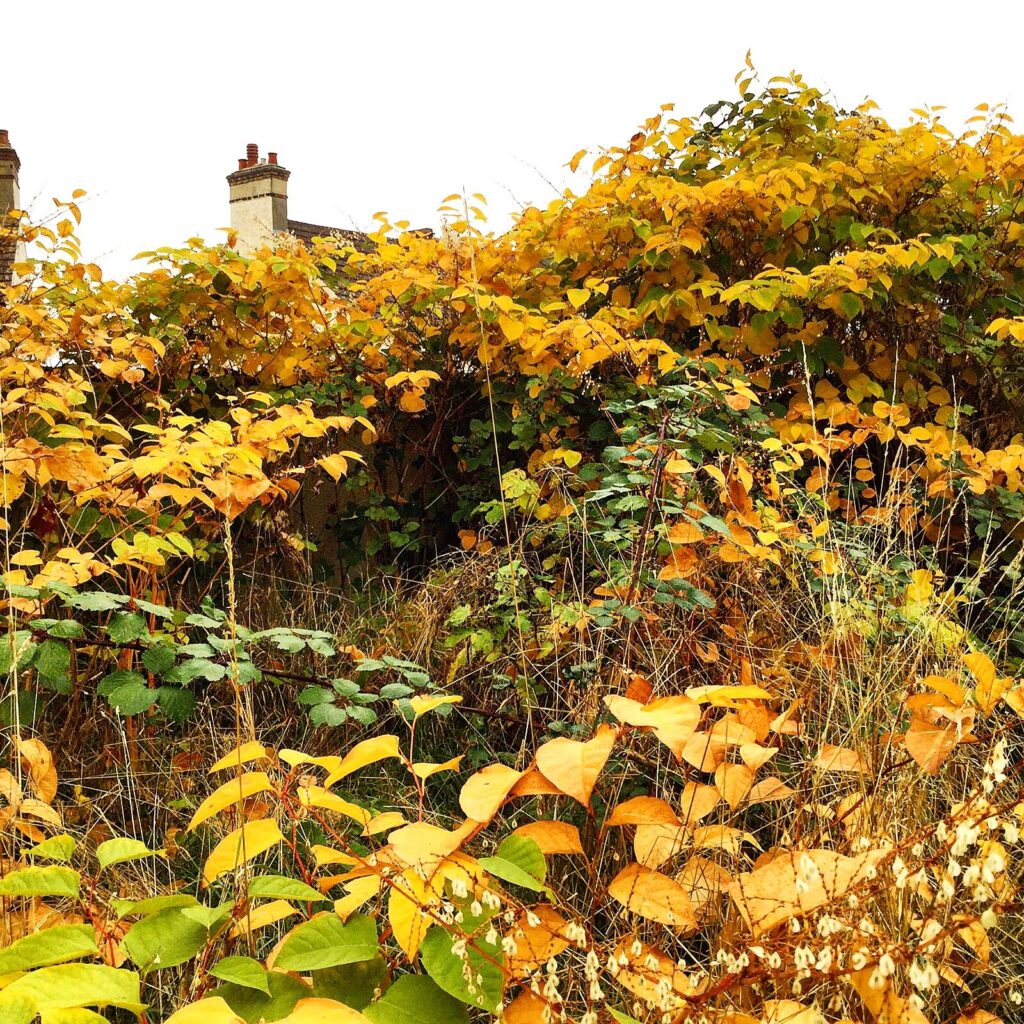Almost 24,000 deals could be impacted by Japanese knotweed in run up to Christmas
02 November 2020: A booming property market has led to reports of conveyancing bottlenecks and long delays for buyers and sellers racing to meet the stamp duty holiday deadline, but almost 24,000 deals could be delayed further or even fall through in the run up to Christmas as a consequence of Japanese knotweed, warns Environet UK.
A total of 474,849 sales were agreed during Q3 2020[1], 53% more than over the same period in 2019, prompting groups such as the Conveyancing Association to issue warnings of delays in the conveyancing process. With Japanese knotweed thought to affect around 5% of UK properties, either directly or indirectly (e.g. neighbouring an affected property), nearly 24,000 deals already agreed could face further complications and delays.
Buyers are particularly vulnerable at this time of year as the plant’s above-ground growth dies back, making it more difficult for a surveyor to identify and much easier for sellers to conceal. The only way to know with a high level of certainty whether a property is affected by knotweed is to commission a dog detection survey which can be carried out during winter, since the dogs are trained to detect the unique scent of knotweed rhizome, even when hidden beneath the ground. Environet’s detection dogs can cover a garden in a matter of minutes and will indicate by freezing if knotweed is detected.
Dog detection surveys are useful to sellers of homes that have been affected by knotweed in the past, or which are located in a high-risk area, who wish to reassure buyers that the property is free of the invasive plant. They’re also useful to buyers who have concerns that a property they wish to buy might be affected, especially if the seller has answered “Not known” in response to the Japanese knotweed question on the TA6 conveyancing form, completed as part of the property sale process.
Nic Seal, Founder and MD of Environet, said:
“As we head into the winter months with the property market far busier than usual, there are thousands of deals already agreed which could be delayed further by Japanese knotweed, risking the possibility of missing out on stamp duty savings. Japanese knotweed is dying back at this time of year and before long all that will remain is some dead-looking canes which are easily removed and concealed, making it harder for buyers and their surveyors to identify the plant.
“The best way to prevent knotweed delaying a sale is to be up front about it from the beginning and ensure there’s a professional plan in place to satisfy a buyer’s mortgage lender. And if you’re unsure if a property you’re buying or selling is affected, call in the detection dogs to find out either way with a high level of certainty.”
Environet offers the following tips to buyers and sellers to reduce the risk of Japanese knotweed scuppering a sale this winter:
- If you are selling a home that has been affected by knotweed in the past, tell the estate agent immediately and be up front with potential buyers.
- Ensure you have a professional treatment plan backed by an insurance-backed guarantee for any knotweed removal work, which can be passed on to the buyer. They will need this to satisfy their mortgage lender, otherwise they may not offer a loan against the property.
- If you’re unsure whether there’s still any knotweed rhizome lurking in the ground, commission a dog detection survey to check the property.
- Always answer honestly on the Law Society TA6 form which asks a direct question about whether the property has been affected by knotweed. If you answer dishonestly and knotweed is subsequently discovered, you could be sued.
- Check how the value of a property you’re buying or selling could be affected by knotweed using the JK-VIM valuation model. Enter some details about the property and the extent of the infestation to find how its value could be impacted.
If you would like to understand more about Japanese Knotweed register for our FREE webinar Thursday 3rd Dec

Japanese knotweed in autumn when the plant dies back (Credit: Environet UK)
If you would like to understand more about Japanese Knotweed register for our FREE webinar Thursday 3rd Dec
Kindly shared by Environet UK


















